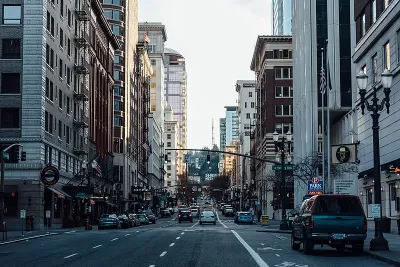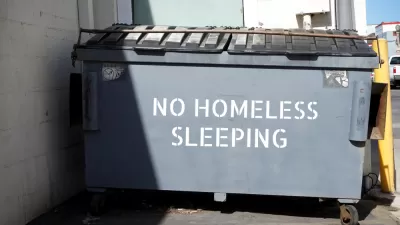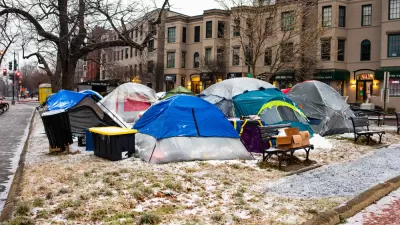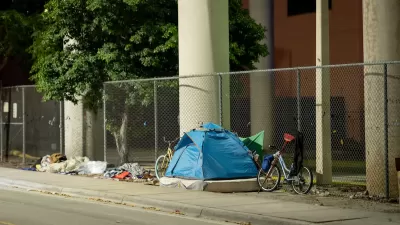The city’s plan to reduce the number of unhoused people has met with criticism, particularly for a proposal to ban encampment on public property citywide.

An article in Smart Cities Dive by Katie Pyzyk outlines next steps for Portland, Oregon’s controversial new plan to address homelessness in the city and reduce the number of people experiencing homelessness on its streets.
After following Center for Disease Control and Prevention (CDC) guidance to allow unhoused people to remain in place during the pandemic, Portland, like other cities, is taking more aggressive steps to remove unsheltered people from the street. In August, Mayor Ted Wheeler banned encampments near schools, and later proposed five resolutions approved by the city council.
In addition to banning encampments citywide, the resolutions call for “Fast-tracking the construction of 20,000 affordable housing units by 2033,” providing work opportunities, creating a diversion program to help people avoid entering the legal system, and setting budget priorities for programs that address homelessness.
Critics of the plan say the camping ban in particular skirts the root causes of homelessness in favor of improving optics, and that the proposed city-sanctioned camping zones would come with their own set of problems. According to Ann Oliva, CEO of the National Alliance to End Homelessness, “This may provide short-term political cover, but it does nothing to alleviate the core issues that most harm our communities and the people who live in them.” The American Civil Liberties Union Oregon chapter (ACLU) says the group will continue to fight encampment bans and sweeps, calling them violations of civil liberties.
FULL STORY: Portland passed a controversial homelessness mitigation plan. Here’s why and what comes next.

Maui's Vacation Rental Debate Turns Ugly
Verbal attacks, misinformation campaigns and fistfights plague a high-stakes debate to convert thousands of vacation rentals into long-term housing.

Planetizen Federal Action Tracker
A weekly monitor of how Trump’s orders and actions are impacting planners and planning in America.

San Francisco Suspends Traffic Calming Amidst Record Deaths
Citing “a challenging fiscal landscape,” the city will cease the program on the heels of 42 traffic deaths, including 24 pedestrians.

Defunct Pittsburgh Power Plant to Become Residential Tower
A decommissioned steam heat plant will be redeveloped into almost 100 affordable housing units.

Trump Prompts Restructuring of Transportation Research Board in “Unprecedented Overreach”
The TRB has eliminated more than half of its committees including those focused on climate, equity, and cities.

Amtrak Rolls Out New Orleans to Alabama “Mardi Gras” Train
The new service will operate morning and evening departures between Mobile and New Orleans.
Urban Design for Planners 1: Software Tools
This six-course series explores essential urban design concepts using open source software and equips planners with the tools they need to participate fully in the urban design process.
Planning for Universal Design
Learn the tools for implementing Universal Design in planning regulations.
Heyer Gruel & Associates PA
JM Goldson LLC
Custer County Colorado
City of Camden Redevelopment Agency
City of Astoria
Transportation Research & Education Center (TREC) at Portland State University
Jefferson Parish Government
Camden Redevelopment Agency
City of Claremont





























